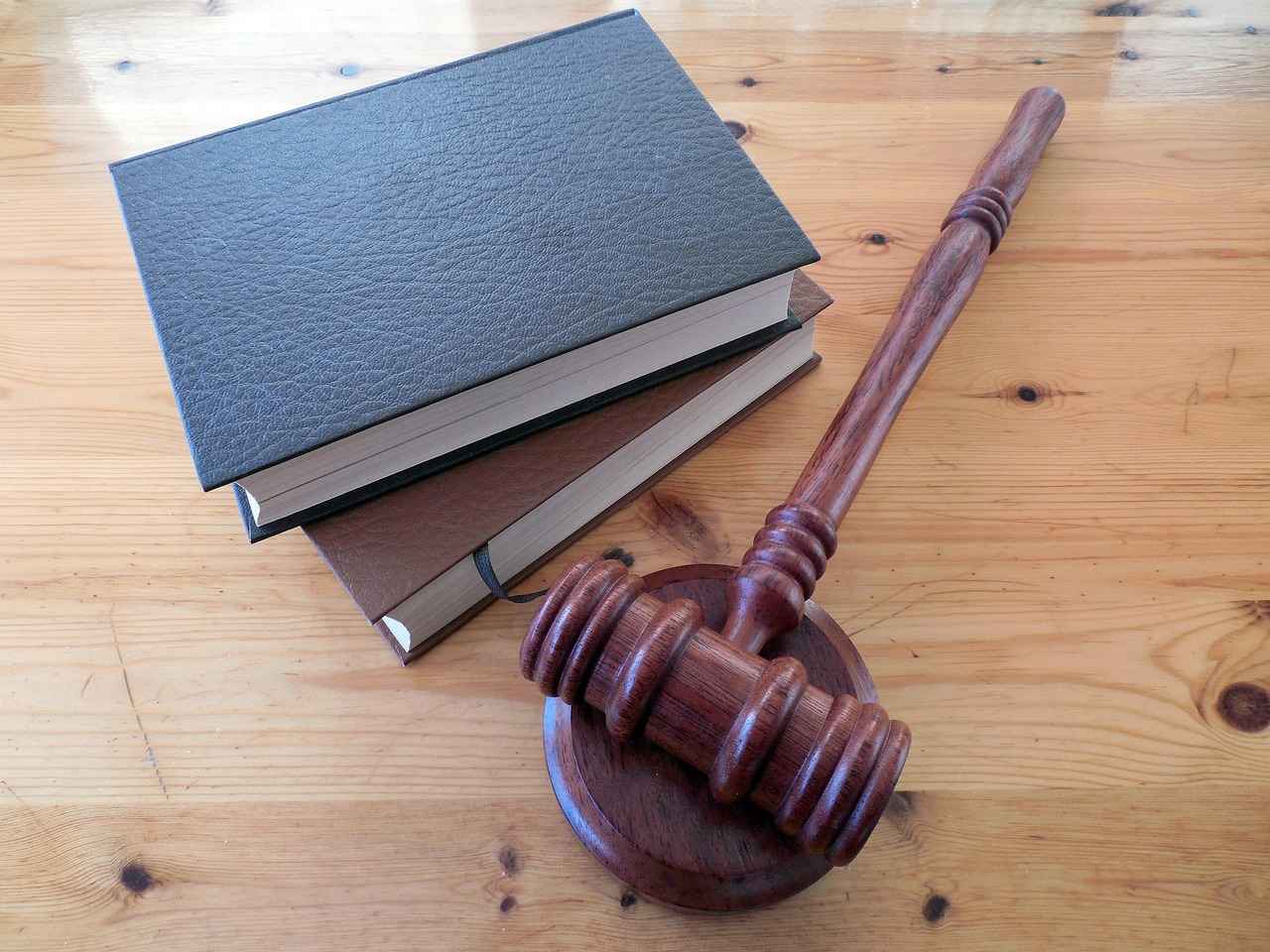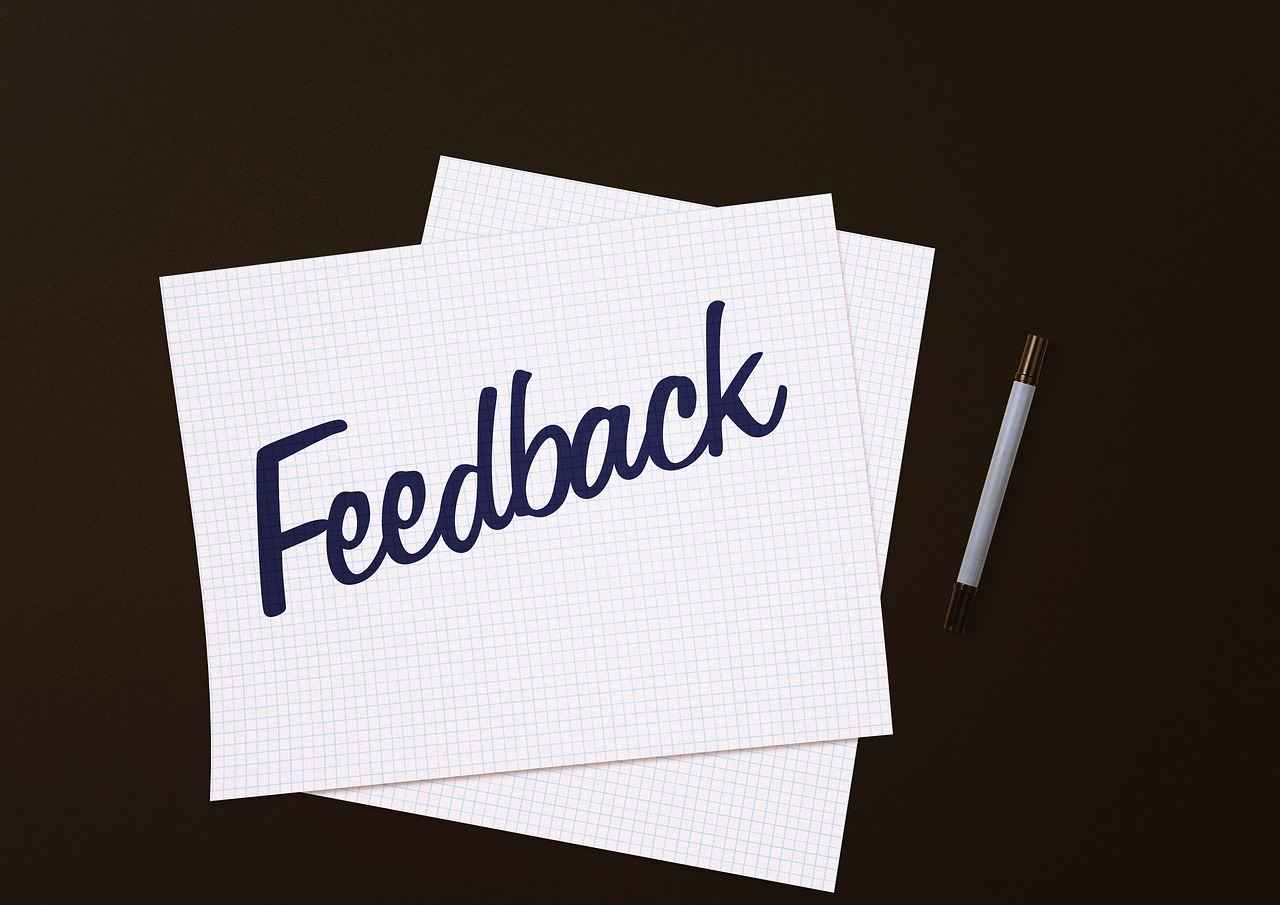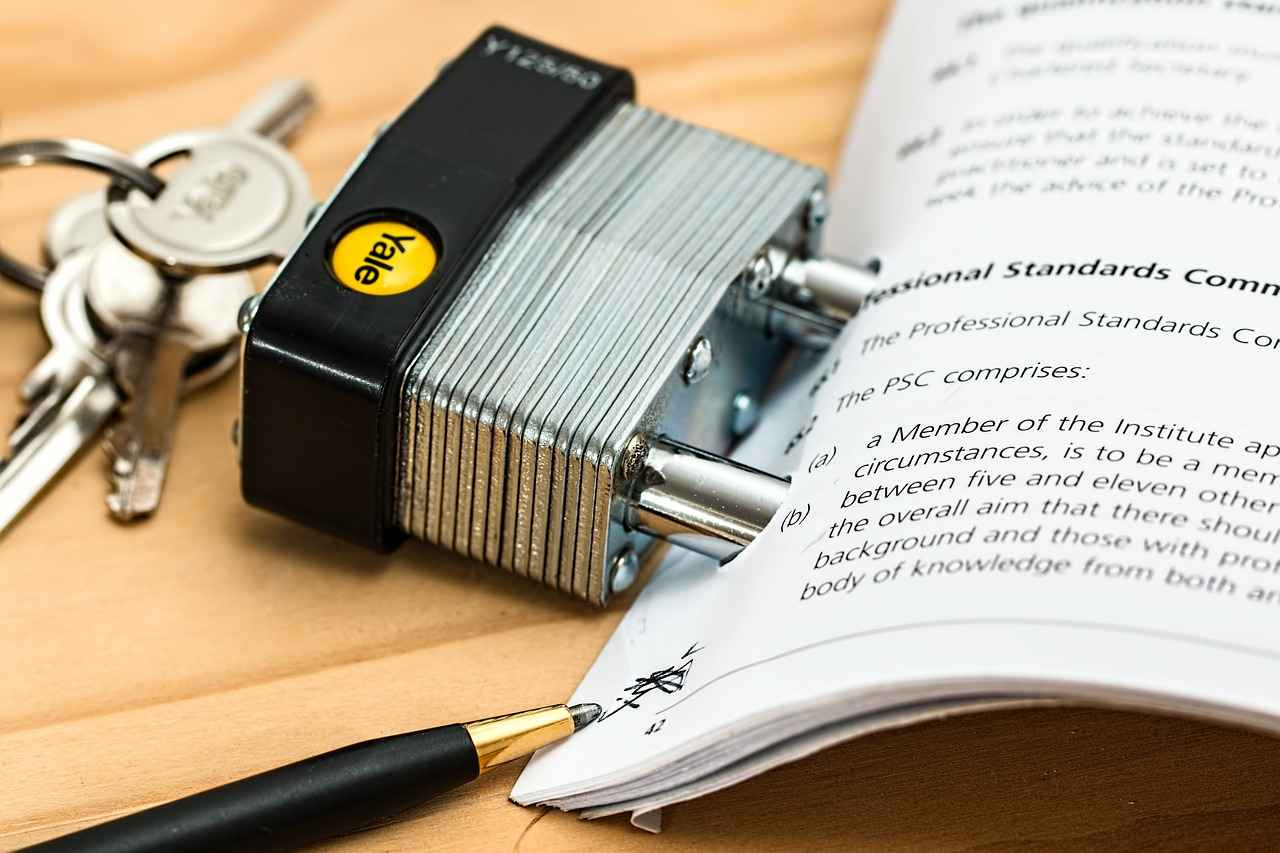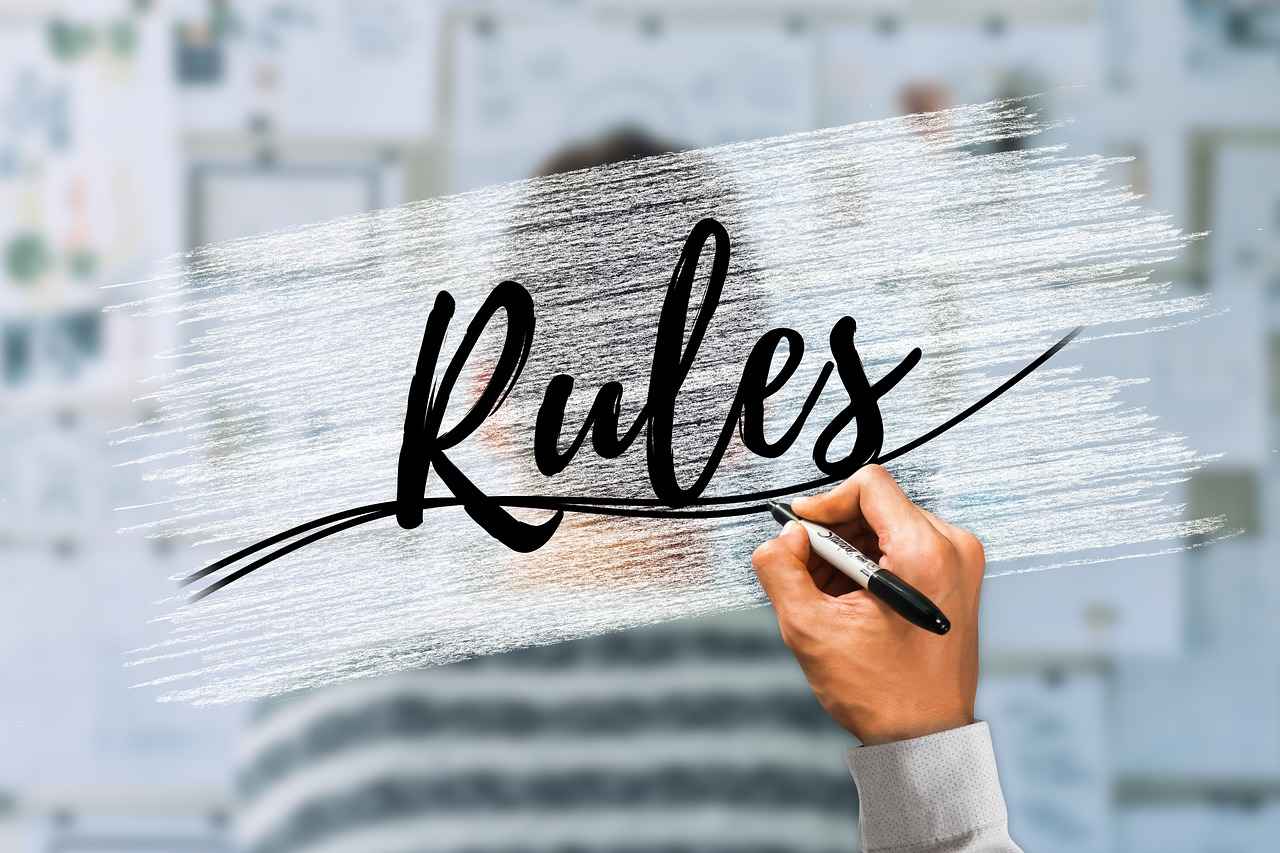Finding the right legal representation can be a daunting task, especially in a bustling city like Santa Ana, California. With numerous legal specialties and a wide array of lawyers available, it’s crucial to understand how to identify the most qualified and trustworthy attorneys for various legal cases. This article will provide insights into the most common types of legal cases in the United States and how to find the best lawyers for each situation.
- Understanding Personal Injury Cases
- Navigating Medical Malpractice Claims
- Breach of Contract: What You Need to Know
- Property Disputes: Finding the Right Legal Help
- Landlord-Tenant Disputes and Legal Representation
- Defamation: Libel and Slander Cases Explained
- Employment Disputes: Finding the Right Attorney
- Product Liability: Legal Expertise You Need
- Understanding Wrongful Death Cases
- Class Action Lawsuits: How to Navigate Them
- Criminal Cases: Assault, Battery, and Drug Offenses
- Family Law: Divorce and Custody Matters
- Bankruptcy and Financial Legal Issues
Personal injury cases arise when individuals suffer harm due to the negligence of others. When seeking a personal injury attorney, look for someone with a proven track record in similar cases, preferably with experience in handling insurance companies. Check their credentials, such as board certifications and client testimonials. Utilize platforms like Avvo and FindLaw to find qualified attorneys.
Medical malpractice occurs when healthcare professionals fail to provide the standard of care, resulting in patient harm. Seek attorneys who specialize in medical malpractice and have experience with similar cases. Verify their success rates and ask for references. It’s essential to choose someone who understands the complexities of medical laws and regulations.
Breach of contract cases can be complicated, involving disputes over the terms of agreements. When hiring a lawyer for these disputes, look for someone with experience in contract law and a solid understanding of the specific industry related to your case. Ask about their negotiation and litigation strategies to ensure they align with your goals.
Property disputes can arise from ownership conflicts, boundary issues, or landlord-tenant disagreements. To find a qualified attorney, consider those who specialize in real estate law. Check their history of resolving similar disputes and their familiarity with local property laws. Referrals from real estate agents can also be beneficial.
Landlord-tenant disputes are common in urban areas. If you are a tenant facing eviction or a landlord dealing with non-payment, seek an attorney who specializes in landlord-tenant law. They should be familiar with local housing regulations and have a successful track record in similar cases.
Defamation cases can severely impact reputations. When looking for a lawyer to handle libel or slander claims, ensure they have experience in media law and understand the nuances of freedom of speech. Look for attorneys who have successfully handled similar cases and can provide references.
Employment disputes, including wrongful termination or discrimination, require specialized legal representation. Seek an attorney with expertise in employment law and a history of advocating for employees. Ensure they are familiar with federal and state employment regulations, and check their success rates in similar cases.
Product liability cases involve injuries caused by defective products. When searching for an attorney, look for someone with experience in consumer protection laws and a successful history of handling product liability claims. They should be knowledgeable about the specific regulations governing product safety.
Wrongful death cases arise when someone dies due to another’s negligence. Finding compassionate and experienced legal representation is crucial. Look for attorneys who specialize in wrongful death and have a strong track record in winning settlements for their clients. They should also be sensitive to the emotional aspects of these cases.
Class action lawsuits allow groups to sue collectively, making it essential to find attorneys who have experience in managing large-scale cases. Look for lawyers with a history of successful class action litigation and strong negotiation skills. They should be able to explain the process clearly and provide updates throughout the case.
Criminal cases, including assault and drug offenses, require specialized legal representation. Seek a skilled criminal defense attorney with a strong background in handling similar charges. Verify their success rates and ensure they are familiar with local laws and court procedures.
Family law encompasses divorce, child custody, and related issues. When choosing a family lawyer, look for someone who understands the complexities of family dynamics and has a successful history in similar cases. They should be empathetic and able to navigate sensitive situations effectively.
Bankruptcy cases can be complex and require expert legal advice. Seek attorneys who specialize in bankruptcy law and have a solid understanding of financial regulations. Look for those with a successful track record in helping clients navigate their financial challenges.

Understanding Personal Injury Cases
Understanding personal injury cases is essential for anyone seeking legal recourse after suffering harm due to another’s negligence or wrongful act. These cases can encompass a wide range of incidents, including car accidents, slip and falls, and medical malpractice. The primary goal in a personal injury case is to obtain compensation for damages such as medical expenses, lost wages, and pain and suffering. To successfully navigate this complex legal landscape, it is crucial to find a specialized lawyer who excels in this area.
Why Specialized Lawyers Matter
Personal injury law is a nuanced field that requires specific knowledge and experience. A lawyer who specializes in personal injury cases will be familiar with the relevant laws, procedures, and potential pitfalls. They can provide invaluable guidance on how to build a strong case and negotiate effectively with insurance companies. When searching for a personal injury attorney, consider the following factors:
- Experience: Look for lawyers with a proven track record in personal injury cases. Check their history of settlements and verdicts to gauge their success rate.
- Reputation: Research online reviews and testimonials from previous clients. A strong reputation often indicates a lawyer’s reliability and effectiveness.
- Communication: Choose an attorney who communicates clearly and promptly. You should feel comfortable discussing your case and asking questions.
- Contingency Fees: Many personal injury lawyers work on a contingency fee basis, meaning they only get paid if you win your case. This arrangement can reduce financial stress while pursuing your claim.
Where to Find Qualified Personal Injury Lawyers
Finding the right personal injury attorney can be challenging, especially in bustling metropolitan areas. Here are some effective methods:
- Online Directories: Websites like Avvo, FindLaw, and Martindale-Hubbell provide listings of lawyers based on their practice areas and client reviews.
- Bar Associations: Local and state bar associations often have referral services that can connect you with qualified attorneys in your area.
- Referrals: Ask friends, family, or colleagues for recommendations. Personal referrals can often lead to trustworthy legal representation.
Red Flags to Avoid
While searching for a personal injury lawyer, be vigilant about potential red flags. These may include:
- Lack of Transparency: If a lawyer is unwilling to discuss fees or provide clear answers about their experience, consider looking elsewhere.
- High Pressure Tactics: Be wary of attorneys who pressure you into signing contracts or making quick decisions.
- Unclear Communication: If you struggle to reach your lawyer or receive delayed responses, it may indicate a lack of commitment to your case.
In conclusion, understanding personal injury cases and knowing how to find the right attorney can significantly impact the outcome of your claim. By focusing on specialized lawyers, utilizing reliable resources, and being aware of potential red flags, you can enhance your chances of receiving the compensation you deserve.

Navigating Medical Malpractice Claims
Medical malpractice claims are a significant concern in the healthcare sector, arising when healthcare professionals fail to meet the accepted standard of care. Such failures can lead to severe consequences for patients, including prolonged suffering, additional health complications, or even death. If you find yourself in a situation where you believe you have been a victim of medical negligence, understanding how to navigate these complex legal waters is crucial.
To begin your search for an experienced attorney specializing in medical malpractice, consider the following steps:
- Research Credentials: Look for attorneys with a background in medical malpractice law. Check their education, years of experience, and any specialized training in healthcare law.
- Check for Board Certifications: An attorney certified by a recognized board in personal injury or medical malpractice indicates a higher level of expertise and commitment to the field.
- Read Reviews and Testimonials: Online reviews can provide insight into an attorney’s success rate and client satisfaction. Look for patterns in feedback regarding their communication, professionalism, and results.
Additionally, utilize legal directories such as Avvo or Martindale-Hubbell. These platforms allow you to compare attorneys based on ratings, reviews, and practice areas. Pay attention to attorneys who have received high ratings from both clients and peers, as this often reflects their reputation in the legal community.
When interviewing potential attorneys, ask specific questions to gauge their experience and approach:
- What is your experience with medical malpractice cases similar to mine?
- What is your success rate in settling or winning these cases?
- How do you plan to approach my case, and what is your strategy for achieving the best outcome?
It’s also essential to discuss fees upfront. Many medical malpractice attorneys work on a contingency fee basis, meaning they only get paid if you win your case. Ensure you understand the fee structure, including any additional costs that may arise during the legal process.
Another critical factor is the attorney’s willingness to go to trial if necessary. Some lawyers may prefer to settle cases quickly, which may not always be in your best interest. Ensure that the attorney you choose is prepared to advocate fiercely for your rights, whether in negotiations or court.
Finally, trust your instincts. A strong attorney-client relationship is vital in medical malpractice cases, as these cases can be lengthy and emotionally taxing. Choose someone you feel comfortable with and who demonstrates genuine concern for your well-being.
In summary, navigating medical malpractice claims requires careful consideration and thorough research. By focusing on credentials, utilizing legal directories, asking the right questions, and ensuring a good rapport with your attorney, you can enhance your chances of securing a favorable outcome in your case.

Breach of Contract: What You Need to Know
Breach of Contract cases are a significant part of the legal landscape, often arising when one party fails to fulfill their obligations as outlined in a contract. The essence of these disputes revolves around the terms of agreements, which can vary widely in complexity and scope. Understanding the nuances of breach of contract cases is crucial for anyone navigating this area of law.
When considering hiring a lawyer for a breach of contract case, several key factors should be taken into account:
- Experience and Specialization: Look for attorneys who specialize in contract law. Their experience in handling similar cases can provide invaluable insights and strategies tailored to your specific situation.
- Track Record: Evaluate the lawyer’s past performance in breach of contract cases. A good attorney will have a history of successful outcomes, whether through negotiation or litigation.
- Communication Skills: Clear communication is essential. Your lawyer should be able to explain complex legal terms and processes in a way that you can understand, ensuring you are informed every step of the way.
- Client Reviews and Testimonials: Research online reviews and ask for references from past clients. This feedback can give you an idea of the lawyer’s reputation and how they manage client relationships.
- Fee Structure: Understand the attorney’s fee structure upfront. Some lawyers charge hourly rates, while others may work on a contingency basis. Ensure that their fees align with your budget and expectations.
In major metropolitan areas like New York City and Los Angeles, the competition among lawyers is fierce. Utilize platforms such as Avvo and FindLaw to compare attorneys based on their ratings, specialties, and client feedback. Additionally, local bar associations can provide referrals to qualified lawyers in your area.
Be cautious of red flags when selecting a lawyer. Avoid those who make unrealistic promises or pressure you into making quick decisions. A reputable attorney will provide a realistic assessment of your case and the potential outcomes, allowing you to make informed choices.
In summary, navigating a breach of contract case requires careful consideration when hiring legal representation. By focusing on experience, communication, and client feedback, you can find a qualified lawyer who is well-equipped to handle your case effectively.

Property Disputes: Finding the Right Legal Help
Property disputes can be a source of significant stress and conflict, often arising from issues such as ownership claims, boundary disputes, and easements. These disputes can involve neighbors, family members, or even business partners, making it essential to seek qualified legal representation. Here’s how to navigate this complex area of law and find the right attorney to help you resolve your property issues.
- Understand the Nature of Your Dispute: Before seeking legal help, it’s crucial to clearly define the nature of your property dispute. Are you dealing with boundary issues, claims of adverse possession, or disagreements over property use? Understanding the specifics will help you find an attorney who specializes in that area.
- Look for Experience and Specialization: When searching for a lawyer, prioritize those who have extensive experience in property law. Look for attorneys who have handled cases similar to yours, as they will be familiar with the nuances and local laws that could impact your case.
- Check Credentials and Reviews: Utilize online platforms such as Avvo or Martindale-Hubbell to check the credentials of potential attorneys. Look for reviews and ratings from past clients to gauge their effectiveness and professionalism.
- Consult Multiple Attorneys: Don’t settle for the first attorney you meet. Schedule consultations with several lawyers to discuss your case. This will give you a better understanding of their approach and help you find someone you feel comfortable working with.
- Ask About Their Strategy: During consultations, inquire about how each attorney plans to approach your case. A good lawyer will be able to outline a clear strategy and explain the potential outcomes.
- Evaluate Communication Skills: Effective communication is vital in any attorney-client relationship. Choose someone who listens to your concerns and explains legal concepts in a way that you can understand.
- Understand Fees and Payment Structures: Before hiring an attorney, make sure you understand their fee structure. Some may charge hourly rates, while others might work on a contingency basis. Ensure you are comfortable with the financial aspect before proceeding.
By taking the time to research and consult with various attorneys, you can find a qualified legal professional who will advocate for your rights and help you navigate the often-contentious world of property disputes. Remember, the right lawyer can make all the difference in achieving a favorable resolution.

Landlord-Tenant Disputes and Legal Representation
Landlord-tenant disputes are a common occurrence in urban areas, often arising from misunderstandings, unmet expectations, or legal violations. Whether you are a landlord seeking to enforce a lease agreement or a tenant seeking to protect your rights, it is crucial to have the right legal representation. Here, we will explore effective strategies for finding a lawyer who specializes in landlord-tenant disputes.
Before seeking legal assistance, it is essential to have a basic understanding of landlord-tenant law. These laws vary significantly by state and even by city, so familiarize yourself with the specific regulations in your area. Common issues include:
- Lease Agreements: Understanding terms and conditions.
- Security Deposits: Laws surrounding collection and return.
- Evictions: Legal processes and tenant rights.
- Repairs and Maintenance: Responsibilities of landlords and tenants.
When looking for a lawyer specializing in landlord-tenant disputes, consider starting with the following resources:
- State Bar Association: Check your state’s bar association for a directory of attorneys.
- Legal Aid Organizations: Nonprofits that offer free or low-cost legal assistance.
- Online Legal Platforms: Websites like Avvo and FindLaw provide reviews and ratings of lawyers.
Once you have a list of potential lawyers, it’s vital to evaluate their credentials:
- Experience: Look for attorneys with a specific focus on landlord-tenant law.
- Track Record: Investigate case outcomes and client testimonials.
- Professional Affiliations: Membership in organizations such as the National Association of Residential Property Managers can be a plus.
During initial consultations, ask pertinent questions to gauge the lawyer’s suitability:
- What is your experience with landlord-tenant disputes?
- What is your approach to resolving conflicts?
- What are your fees and payment structures?
Be cautious of potential red flags that may indicate a lawyer is not the right fit:
- Lack of Transparency: Avoid attorneys who are vague about fees or processes.
- Negative Reviews: Be wary of lawyers with consistently poor feedback.
- High Pressure Tactics: If a lawyer pushes you to make a quick decision, reconsider.
In addition to online resources, consider reaching out to local community centers or housing authorities for recommendations on reputable lawyers. Often, these organizations have established relationships with legal professionals who specialize in landlord-tenant issues.
Legal fees can vary widely based on the complexity of the case and the lawyer’s experience. Make sure you understand:
- Hourly Rates: Many lawyers charge by the hour, so clarify their rates upfront.
- Flat Fees: Some attorneys offer flat fees for specific services, which can be more predictable.
- Contingency Fees: In some cases, lawyers may work on a contingency basis, taking a percentage of any settlement.
Finding the right lawyer for landlord-tenant disputes requires careful consideration and research. By understanding the legal landscape, utilizing available resources, and asking the right questions, you can ensure that you choose a qualified attorney who will effectively protect your rights.

Defamation: Libel and Slander Cases Explained
Defamation cases, encompassing both libel (written defamation) and slander (spoken defamation), can have a profound impact on an individual’s or entity’s reputation. In today’s digital age, where information spreads rapidly, the potential for defamation claims has increased significantly. Understanding how to navigate these complex legal waters is crucial for anyone who believes they have been wronged or accused of wrongdoing.
When seeking legal representation for a defamation case, it is essential to consider several key qualifications to ensure that you are hiring an attorney who is well-equipped to handle your claim effectively.
- Experience in Defamation Law: Look for attorneys who specialize in defamation cases. An attorney with a proven track record in handling libel and slander claims will have the necessary expertise to navigate the complexities of these cases, including understanding the nuances of state laws and precedents.
- Strong Communication Skills: Effective communication is vital in legal proceedings. Your attorney should be able to articulate your case clearly and persuasively, both in written documents and oral arguments. This skill can significantly influence the outcome of your case.
- Reputation Among Peers: Research the attorney’s reputation within the legal community. Peer reviews and ratings from organizations such as Martindale-Hubbell can provide insight into the attorney’s standing and credibility.
- Trial Experience: Many defamation cases may end up in court. Therefore, it is beneficial to hire an attorney with trial experience, especially in cases involving media outlets or public figures. Their familiarity with courtroom procedures and strategies can be invaluable.
- Client Testimonials: Look for reviews and testimonials from previous clients. This feedback can give you a sense of the attorney’s success rate and client satisfaction. A pattern of positive reviews can be a strong indicator of an attorney’s capabilities.
- Understanding of Media Law: Given the nature of many defamation cases, an attorney who understands media law can provide an added advantage, particularly if your case involves public statements or publications.
In addition to these qualifications, it is crucial to be aware of potential red flags when hiring a defamation attorney. Avoid attorneys who make unrealistic promises about the outcome of your case or those who pressure you into making quick decisions. A reputable lawyer will provide you with a realistic assessment of your situation and allow you the time to make informed decisions.
Finally, consider utilizing online legal directories and platforms such as Avvo or FindLaw to research potential attorneys. These platforms often provide ratings, reviews, and detailed profiles that can help you make an informed choice. Additionally, personal referrals from friends or family who have had positive experiences with legal representation can be invaluable.
In summary, choosing the right attorney for a defamation case requires careful consideration of their qualifications, experience, and reputation. By following these guidelines, you can enhance your chances of finding a capable and trustworthy legal representative who can effectively advocate for your interests in this challenging area of law.

Employment Disputes: Finding the Right Attorney
Employment disputes can be challenging and emotionally draining, often involving issues such as wrongful termination, discrimination, and harassment. In Santa Ana, California, as in many urban areas, it is crucial to find an attorney who specializes in employment law to effectively navigate these complex matters. This guide will help you identify the right legal representation for your employment dispute.
First and foremost, it is essential to understand the nature of your dispute. Employment law encompasses a wide range of issues, including unlawful termination, workplace discrimination, sexual harassment, and wage disputes. Understanding the specifics of your case will help you seek out an attorney with the appropriate expertise. For instance, if your case involves discrimination based on age or gender, look for a lawyer who has a proven track record in handling such cases.
When searching for an attorney, consider the following methods:
- Referrals: Ask friends, family, or colleagues if they can recommend a qualified employment lawyer. Personal experiences can provide valuable insights into an attorney’s capabilities.
- Online Platforms: Websites like Avvo, FindLaw, and Martindale-Hubbell offer directories of lawyers, complete with reviews and ratings. These platforms can help you find attorneys who specialize in employment law in Santa Ana.
- Bar Associations: The California State Bar Association can be an excellent resource for finding licensed attorneys in your area. They often provide referral services based on the specific legal issue.
Once you have a list of potential attorneys, evaluate their qualifications:
- Experience: Look for lawyers who have substantial experience in employment law. An attorney with a history of handling cases similar to yours will be better equipped to navigate the complexities involved.
- Credentials: Check their educational background, certifications, and any special training in employment law. Membership in professional organizations, such as the National Employment Lawyers Association (NELA), can also be a positive indicator.
- Client Reviews: Read reviews and testimonials from previous clients to gauge their satisfaction with the attorney’s services. Pay attention to recurring themes, such as communication skills and case outcomes.
During your initial consultation, which many lawyers offer for free, be prepared to ask pertinent questions:
- What is your experience with cases similar to mine?
- What is your approach to handling employment disputes?
- How do you communicate with clients throughout the process?
- What are your fees, and how are they structured?
It is essential to feel comfortable with your attorney, as you will be sharing sensitive information about your employment situation. Trust your instincts; if something feels off during your consultation, it may be wise to continue your search.
Lastly, be wary of red flags that may indicate an attorney is not the right fit:
- Lack of Communication: If the attorney is hard to reach or does not respond promptly to your inquiries, this may be a sign of future issues.
- Pressure Tactics: Be cautious of lawyers who pressure you to sign contracts or make decisions quickly without giving you time to think.
- Unclear Fee Structures: Avoid attorneys who cannot clearly explain their fees or who require large upfront payments without a clear understanding of the services provided.
In summary, finding the right attorney for your employment dispute in Santa Ana requires careful consideration and research. By understanding your case, utilizing various resources, and evaluating potential lawyers based on their experience and client feedback, you can increase your chances of securing a favorable outcome. Remember, the right legal representation can make all the difference in navigating the complexities of employment law.

Product Liability: Legal Expertise You Need
Product liability cases arise when consumers suffer injuries or damages due to defective products. These cases can be particularly complex, as they often involve multiple parties, including manufacturers, distributors, and retailers. Understanding how to find the right attorney to navigate these legal waters is crucial for anyone facing such a situation.
What is Product Liability?
Product liability law holds manufacturers and sellers accountable for placing a defective product into the hands of a consumer. There are three primary types of defects that can lead to liability:
- Design Defects: Flaws inherent in the product’s design that make it unsafe.
- Manufacturing Defects: Errors that occur during the production process, resulting in a flawed product.
- Marketing Defects: Inadequate instructions or warnings that fail to inform consumers about potential risks.
Finding Experienced Product Liability Attorneys
When seeking legal representation for a product liability case, it’s essential to look for attorneys who specialize in this area of law. Here are some effective strategies to identify qualified legal professionals:
- Research Online: Utilize legal directories such as Avvo or FindLaw to locate attorneys with expertise in product liability.
- Check Credentials: Look for attorneys who are members of relevant associations, such as the American Association for Justice or local bar associations that focus on personal injury law.
- Read Reviews: Customer feedback on platforms like Yelp or Google Maps can provide insights into an attorney’s reputation and effectiveness.
Questions to Ask Potential Attorneys
During consultations, consider asking the following questions to gauge the attorney’s qualifications:
- What is your experience with product liability cases?
- Can you provide examples of similar cases you have handled?
- What is your strategy for approaching my case?
- What are your fees, and how do you structure your billing?
Red Flags to Avoid
While searching for the right attorney, be mindful of potential red flags:
- Lack of Specialization: Avoid attorneys who do not have a focused practice in product liability or personal injury law.
- Unclear Communication: If an attorney is vague about their fees or strategies, consider it a warning sign.
- Poor Reviews: Consistently negative feedback from former clients can indicate a lack of competence or professionalism.
Conclusion
Finding the right attorney for a product liability case is vital for achieving a favorable outcome. By conducting thorough research, asking pertinent questions, and being aware of red flags, individuals can secure experienced legal representation that meets their needs.

Understanding Wrongful Death Cases
Wrongful death cases arise when an individual dies due to the negligence or wrongful actions of another party. These cases can be complex and emotionally charged, as they often involve the loss of a loved one. Finding the right legal representation is crucial in ensuring that the rights of the deceased and their family are protected. Here, we provide guidance on how to find compassionate and experienced legal representation for wrongful death cases.
When searching for a lawyer specializing in wrongful death, consider the following key factors:
- Experience: Look for attorneys with a proven track record in handling wrongful death cases. An attorney with extensive experience is more likely to understand the nuances of the law and the intricacies involved in these cases.
- Compassion: Given the sensitive nature of wrongful death cases, it is essential to find a lawyer who demonstrates empathy and compassion. They should be willing to listen to your concerns and provide emotional support throughout the legal process.
- Reputation: Research the attorney’s reputation within the legal community. Look for reviews, testimonials, and any disciplinary actions that may have been taken against them. A reputable lawyer will have a history of successful case outcomes and satisfied clients.
- Specialization: Ensure that the attorney specializes in wrongful death and personal injury law. Specialized lawyers have in-depth knowledge of the legal precedents and statutes that apply specifically to wrongful death cases.
- Consultation: Many attorneys offer free initial consultations. Take advantage of this opportunity to gauge their expertise and compatibility. Prepare a list of questions to ask during the consultation, such as their approach to handling cases and their fee structure.
In addition to these factors, it is also crucial to understand the legal process involved in wrongful death cases. Here is a brief overview:
1. **Filing a Claim:** A wrongful death claim must be filed within a specific timeframe, known as the statute of limitations. This varies by state.2. **Investigation:** The attorney will conduct a thorough investigation to gather evidence, such as medical records, accident reports, and witness statements.3. **Negotiation:** Many wrongful death cases are settled out of court. Your attorney will negotiate with the responsible party's insurance company to reach a fair settlement.4. **Trial:** If a settlement cannot be reached, the case may go to trial, where a judge or jury will determine the outcome.
To find qualified lawyers in metropolitan areas like New York City, Los Angeles, and Chicago, consider utilizing online legal directories, local bar association referrals, and recommendations from trusted friends or family. Websites such as Avvo and FindLaw can also provide valuable insights into attorneys’ backgrounds, areas of expertise, and client reviews.
Finally, be cautious of red flags when hiring a lawyer. Avoid attorneys who make unrealistic promises, pressure you into signing contracts quickly, or lack transparency regarding their fees and processes. A trustworthy attorney will be upfront about their capabilities and the potential challenges of your case.
By following these guidelines, you can find a compassionate and experienced attorney who will advocate for your rights and help you seek justice in the wake of a wrongful death.

Class Action Lawsuits: How to Navigate Them
Class action lawsuits serve as a powerful mechanism for individuals to collectively seek justice against entities that may have wronged them. These cases often involve a large number of plaintiffs who have suffered similar damages due to the actions of a corporation or organization. Understanding how to navigate this legal landscape is crucial for those considering joining or initiating a class action suit.
To begin with, it is essential to identify attorneys who specialize in class action lawsuits. Look for legal professionals who have a robust track record in handling such cases, as these lawsuits can be complex and require extensive resources. Here are some practical steps to help you find the right attorney:
- Research Law Firms: Start by researching law firms that have a dedicated practice area for class actions. Many firms will list their specialties on their websites, showcasing past successes and notable cases.
- Check Credentials: Look for attorneys who are members of professional organizations such as the American Association for Justice (AAJ) or state bar associations. These credentials can indicate a commitment to staying updated on the latest legal developments.
- Read Reviews: Online reviews and testimonials can provide insight into the attorney’s reputation. Websites like Avvo or Martindale-Hubbell can be valuable resources for assessing potential lawyers.
- Consult Legal Directories: Utilize legal directories that allow you to filter attorneys based on their experience with class action lawsuits. These directories often provide detailed profiles, including case histories and client reviews.
When meeting with potential attorneys, consider asking the following questions:
- What is your experience with class action lawsuits similar to mine?
- Can you provide examples of successful outcomes from past cases?
- How do you approach case management and communication with clients?
It is also important to be aware of red flags when selecting an attorney. Be cautious of lawyers who promise guaranteed outcomes or seem overly aggressive in their tactics. Transparency regarding fees is critical; ensure you understand the fee structure, including any contingency fees that may apply.
Class action lawsuits can span various issues, including consumer fraud, product liability, and employment discrimination, among others. Each type may require different legal strategies and expertise, so it is crucial to find an attorney who understands the specific nuances of your case.
In conclusion, navigating class action lawsuits requires careful consideration and research. By following these guidelines, you can increase your chances of finding a qualified attorney who will advocate effectively on your behalf.

Criminal Cases: Assault, Battery, and Drug Offenses
When it comes to criminal cases, particularly those involving assault, battery, and drug offenses, the stakes are incredibly high. These cases can lead to severe penalties, including incarceration, hefty fines, and long-lasting impacts on one’s personal and professional life. Therefore, securing the right legal representation is not just important; it is essential.
Finding a skilled criminal defense attorney requires careful consideration and research. Here are some practical tips to help you navigate this critical process:
- Specialization: Look for attorneys who specialize in criminal law, particularly those with experience in cases similar to yours. For instance, if you are facing drug charges, seek out a lawyer who has a proven track record in handling drug-related offenses.
- Experience: An attorney’s experience can significantly impact the outcome of your case. Aim for lawyers who have practiced for several years and have dealt with cases in your jurisdiction.
- Reputation: Online reviews and testimonials can provide insights into an attorney’s reputation. Websites like Avvo and Martindale-Hubbell offer ratings and reviews that can help you assess potential lawyers.
- Consultation: Many attorneys offer free initial consultations. Take advantage of this opportunity to discuss your case and gauge the lawyer’s expertise and compatibility with your needs.
- Communication: Effective communication is crucial in legal matters. Choose an attorney who listens to your concerns and explains complex legal concepts in a way that is easy to understand.
- Fees: Understand the attorney’s fee structure upfront. Some lawyers charge a flat fee, while others bill hourly. Make sure you are comfortable with their pricing model before proceeding.
- Red Flags: Be wary of attorneys who guarantee specific outcomes or pressure you into making quick decisions. A reputable lawyer will provide honest assessments and allow you time to consider your options.
In metropolitan areas like New York City, Los Angeles, and Chicago, the legal landscape can be overwhelming due to the sheer number of available attorneys. However, utilizing local bar associations and legal aid organizations can help narrow down your options. These resources often provide referrals to qualified attorneys based on your specific legal needs.
Additionally, consider reaching out to friends or family who may have had similar legal experiences. Personal recommendations can lead you to trustworthy lawyers who have successfully handled cases like yours.
In summary, finding the right criminal defense attorney is crucial for anyone facing serious charges such as assault, battery, or drug offenses. By focusing on specialization, experience, and reputation, and by utilizing available resources, you can secure legal representation that will advocate effectively on your behalf.

Family Law: Divorce and Custody Matters
Family law is a critical area of legal practice that encompasses various issues including divorce, child custody, child support, and more. In Santa Ana, California, the complexities of family law can be overwhelming, making it essential to find a lawyer who not only understands the legal intricacies but also exhibits compassion and understanding for the emotional aspects involved.
When searching for the right family lawyer, consider the following key factors:
- Experience and Specialization: Look for attorneys who specialize in family law. A lawyer with extensive experience in divorce and custody matters will be more adept at navigating the nuances of these cases.
- Reputation: Research the lawyer’s reputation in the community. Online reviews, testimonials, and referrals from friends or family can provide valuable insights into their reliability and effectiveness.
- Communication Skills: Effective communication is vital in family law cases. Choose a lawyer who listens to your concerns, explains legal terms in a comprehensible manner, and keeps you informed throughout the process.
- Approach to Conflict Resolution: Family law cases often involve sensitive issues. A lawyer who prioritizes mediation and collaborative solutions can help minimize conflict and foster a more amicable resolution.
- Fees and Payment Structures: Understand the lawyer’s fee structure upfront. Some may charge hourly rates, while others might offer flat fees or payment plans. Ensure that you are comfortable with the financial arrangements before proceeding.
Understanding Divorce Proceedings: Divorce can be a complicated process involving the division of assets, debts, and custody arrangements. A knowledgeable family lawyer will guide you through the legal requirements and help you make informed decisions that align with your best interests.
Child Custody Considerations: Custody disputes can be particularly challenging. An experienced attorney will advocate for your parental rights while considering the best interests of the child. They will help you navigate custody arrangements, visitation schedules, and child support obligations.
Emotional Support: Family law cases can be emotionally taxing. A good lawyer not only provides legal expertise but also offers emotional support, helping you cope with the challenges that arise during the process.
In summary, finding a competent family lawyer in Santa Ana requires careful consideration of their experience, reputation, and approach to conflict resolution. By taking the time to research and evaluate potential attorneys, you can secure the legal representation necessary to navigate your family law issues effectively.

Bankruptcy and Financial Legal Issues
Bankruptcy cases can be complex and require expert legal advice. As individuals face overwhelming debt, understanding the nuances of bankruptcy law is crucial. In the United States, bankruptcy serves as a legal mechanism for individuals and businesses to alleviate their financial burdens. The process can be daunting, but finding the right attorney can make a significant difference in navigating this challenging landscape.
When searching for attorneys who specialize in bankruptcy and financial disputes, consider the following steps:
- Research Specialization: Look for lawyers who specialize specifically in bankruptcy law. This area of law can be intricate, involving various chapters of the Bankruptcy Code, including Chapter 7, Chapter 11, and Chapter 13. An attorney with a focus in this field will have the necessary expertise to guide you through the process.
- Check Credentials: Verify the attorney’s credentials and experience. Look for membership in organizations such as the American Bankruptcy Institute or local bar associations. These affiliations often indicate a commitment to staying updated on current laws and practices.
- Read Reviews: Online reviews and testimonials can provide insight into an attorney’s reputation and the experiences of past clients. Websites such as Avvo or Martindale-Hubbell offer ratings and reviews that can help you gauge an attorney’s reliability and success rate.
- Schedule Consultations: Many attorneys offer free initial consultations. Use this opportunity to ask questions about their experience, approach, and fees. Ensure you feel comfortable with their communication style and that they take the time to address your concerns.
- Understand Fees: Bankruptcy attorneys often charge different fees based on the complexity of the case. Be sure to discuss all potential costs upfront, including retainer fees and payment plans. A transparent fee structure can prevent surprises later in the process.
Additionally, be aware of red flags when choosing a bankruptcy attorney:
- Promises of Guaranteed Outcomes: No attorney can guarantee a specific result in a bankruptcy case. Be cautious of those who make such claims, as they may not be trustworthy.
- Lack of Experience: While every attorney has to start somewhere, those with limited experience in bankruptcy law may not be equipped to handle the complexities of your case.
- High Pressure Tactics: If an attorney pressures you to sign a contract or make a decision quickly, it may be a sign of unprofessionalism. Take your time to make an informed choice.
In summary, finding the right attorney for bankruptcy and financial legal issues involves thorough research and careful consideration. By focusing on specialization, checking credentials, and being aware of potential red flags, you can secure the expert legal representation necessary to navigate your financial challenges effectively.
Frequently Asked Questions
- How do I choose the right lawyer for my case?
Choosing the right lawyer can feel like finding a needle in a haystack! Start by identifying your specific legal needs and look for attorneys who specialize in that area. Don’t forget to check reviews and ask for referrals to ensure you’re picking someone trustworthy.
- What should I expect during my first consultation?
During your first consultation, expect a friendly chat about your case. The lawyer will ask questions to understand your situation better, and you’ll have the chance to ask about their experience and fees. It’s like a first date, but instead of dinner, you’re discussing your legal woes!
- How much do lawyers charge for their services?
Lawyer fees can vary widely based on their experience and the complexity of your case. Some charge hourly rates, while others may work on a contingency basis, meaning they only get paid if you win your case. Always clarify the fee structure upfront to avoid any surprises!
- Can I represent myself in court?
While you can represent yourself, it’s often like trying to fix your car without any tools—risky! Legal processes can be complicated, and having a skilled attorney can make a huge difference in the outcome of your case.
- What if I can’t afford a lawyer?
If money is tight, don’t worry! Many lawyers offer free consultations, and some work on a sliding scale based on your income. You can also look for legal aid organizations that provide assistance to those in need.














